We are one among the few exclusive kids dental clinics in India to practice laughing gas dentistry (or) sleep dentistry on a regular basis for children. We are also the first in Tamil Nadu to introduce this in an exclusive pediatric dental setup. Its use is basically to reduce the dental anxiety and fear for dentistry among children.The pediatric dental specialists who handle this form of dental sedation in our clinics are expert doctors in sleep dentistry(N2O2) for kids. Both our dental clinics at Annanagar and Pallikaranai are equipped with the needed infrastructure to perform sleep dentistry effectively and efficiently for children.
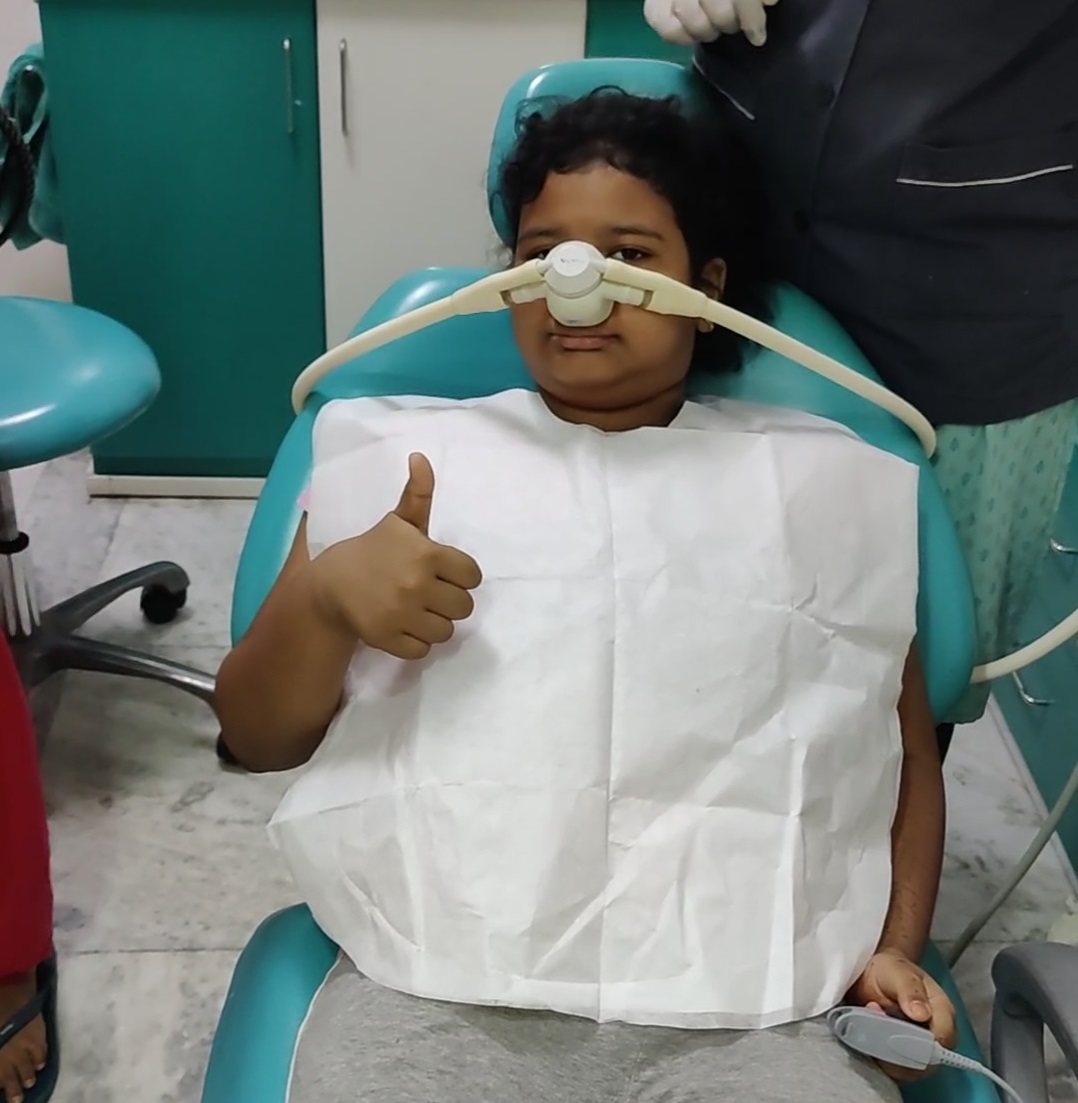
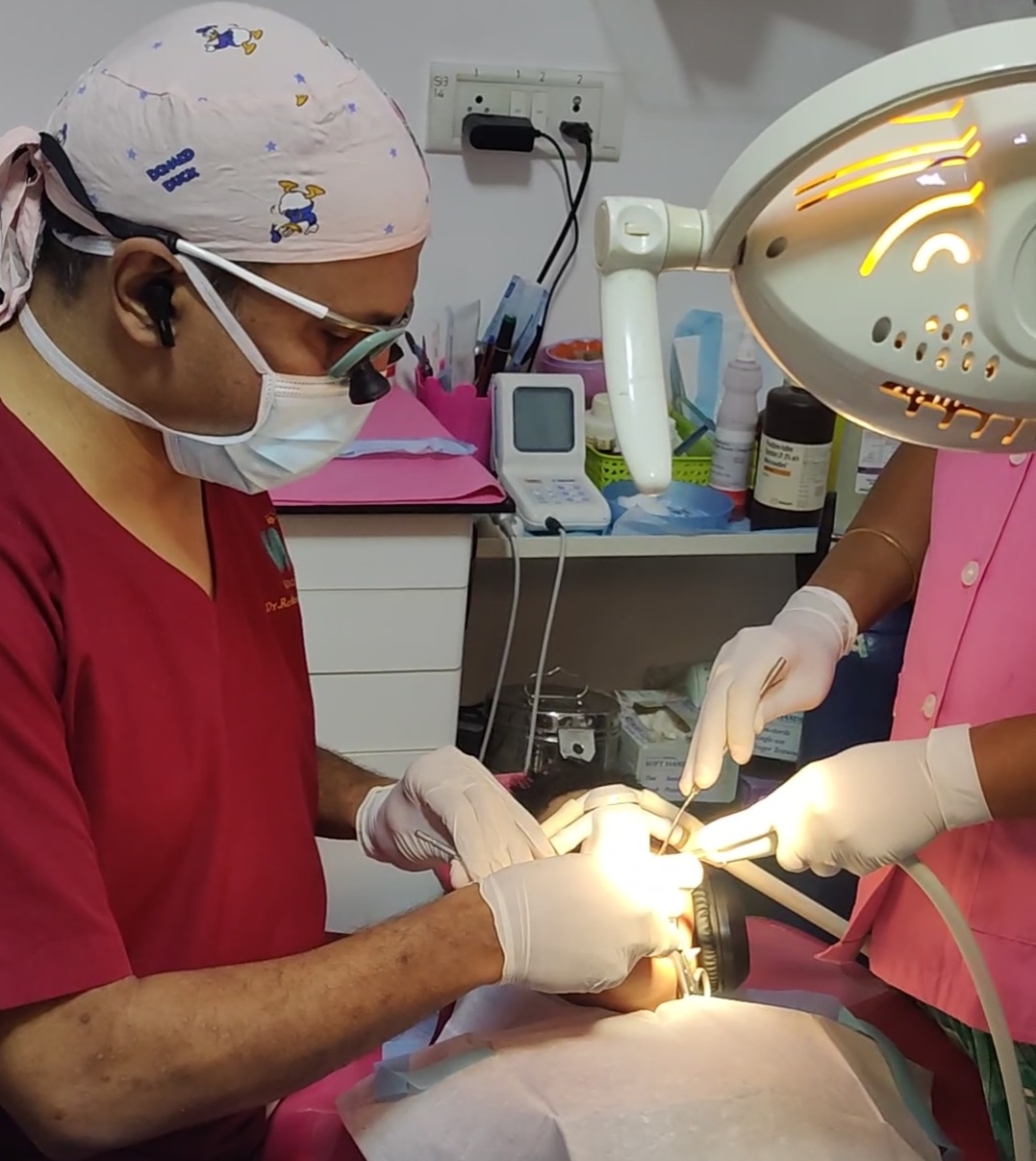
It is technically called as NOIS ( Laughing gas inhalational sedation ) which is utilised by good pediatric dental specialists in most part of the developed countries to handle dental problem for children with least possible discomfort . The ideology of KIDZ ‘N’ TEENZ to inculcate this into our day to day dental practice is that no children who come to us for dental treatment should leave our dental operatory crying after treatment with us. So NOIS along with audiovisual distraction like cartoon and music make a good combination to distract children from anxiety, fear and pain during dental treatment .So when the children are enjoying the visuals while the pediatric dental specialist at annanagar and pallikaranai are enjoying treating the kids under sleep dentistry.
As doctors, the advantage personally what we feel is that we do not get burned out handling multiple kids in a single tightly packed appointment schedule in a day. NOIS helps the child to have a pleasant outcome of the dental treatment. Sleep dentistry also enhances the quality of care rendered to the child by the pediatric dentists at KIDZ N TEENZ. Regarding the safety of use NOIS is always administered with a mixed dose of oxygen which is normally higher than what we breathe from the atmospheric air. So there is no chance of the child landing up with any kind of breathing difficulty during the dental procedure.
We pediatric dentists at KIDZ N TEENZ in annanagar and pallikaranai are stalwarts in Tamilnadu to propogate this concept of dental sedation for children. “NOIS creates noise about our pediatric dental practice”
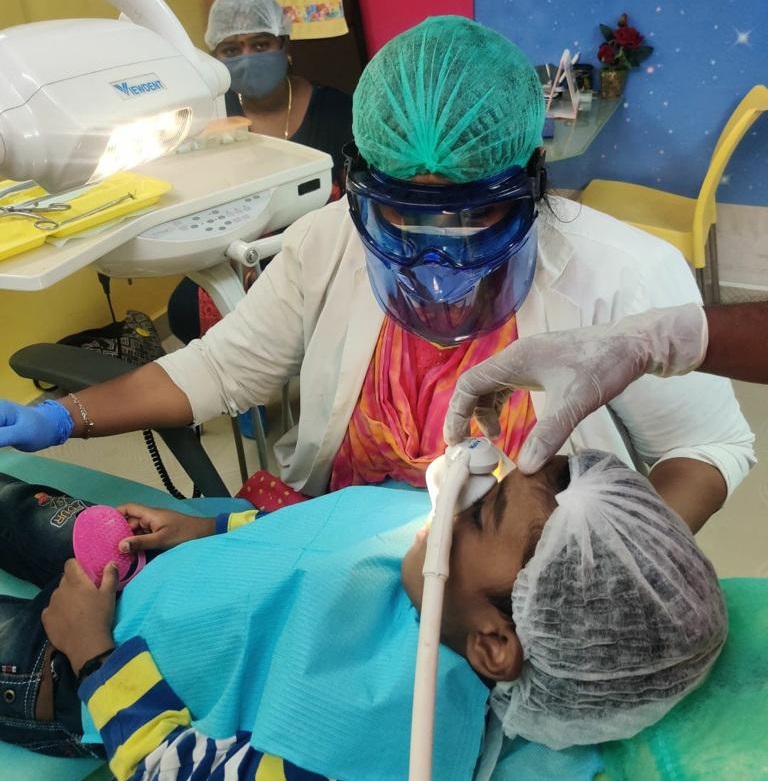
Sedation dentistry is a process in which the dentist uses medication or drugs to relax the patient before or during a long dental procedure. Dentists also call sedation dentistry as sleep dentistry. The patient is usually awake after he is given the sedation dentistry drug. Complete sleep happens when the patient is given anesthesia by the dentist.There are set rules and guidelines for dentists to comply with their state laws when providing sedation dentistry drugs and anesthesia to a person. The dentist must be qualified and should have extensive sedation dentistry experience to carry out such procedures.
The sedation dentistry drugs use either oral or intravenous injection, depending on what kind of procedure needs to be done. Injections are given directly into a vein or muscle tissue using an IV line that runs under the skin of your arm (intravenous). Oral medications are swallowed whole or mixed with water (oral). Both types of medications take effect quickly, within minutes.
During this time, you will feel drowsy, but you will still be awake enough so that we can talk with you about any questions or concerns you might have while we work on your teeth and gums. You may also feel some pain from having instruments used on your.
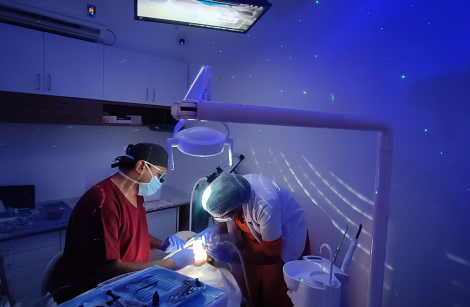
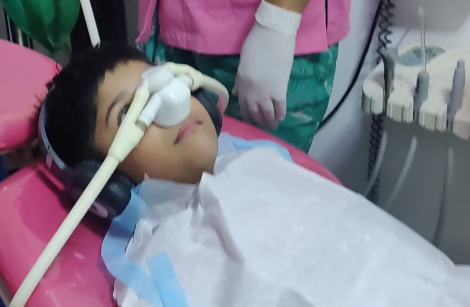
As doctors, the advantage personally what we feel is that we do not get burned out handling multiple kids in a single tightly packed appointment schedule in a day. NOIS helps the child to have a pleasant outcome of the dental treatment. Sleep dentistry also enhances the quality of care rendered to the child by the pediatric dentists at KIDZ N TEENZ. Regarding the safety of use NOIS is always administered with a mixed dose of oxygen which is normally higher than what we breathe from the atmospheric air. So there is no chance of the child landing up with any kind of breathing difficulty during the dental procedure.
We pediatric dentists at KIDZ N TEENZ in annanagar and pallikaranai are stalwarts in Tamilnadu to propogate this concept of dental sedation for children. “NOIS creates noise about our pediatric dental practice”
Sedation dentistry is generally considered safe for all types of patients. The dentist carrying out the procedure should have a sound sedation dentistry experience and should use sedation dentistry drugs while keeping in mind the well-being of the patients.
A variety of techniques are used in Sedation dentistry and they include the following:




Here are the top questions people ask when considering sedation dentistry.
It depends on what type of sedation dentistry procedure you choose, but typically, it takes about an hour from start to finish.
No! You'll be asleep or drowsy during most of the procedure so you won't feel any pain at all. If you're coming in for an exam, cleaning or simple procedure like having your teeth whitened, you can expect minimal discomfort. For more complex procedures such as fillings or crowns, you'll be given moderate sedation so that even if there is some discomfort during the procedure itself (which there shouldn't be), it will be masked by the medication and you won't feel anything afterwards either!
You'll probably remember bits and pieces of what happened throughout your visit like how many rooms we were in or which instruments came out of which drawer first – but not much else!



